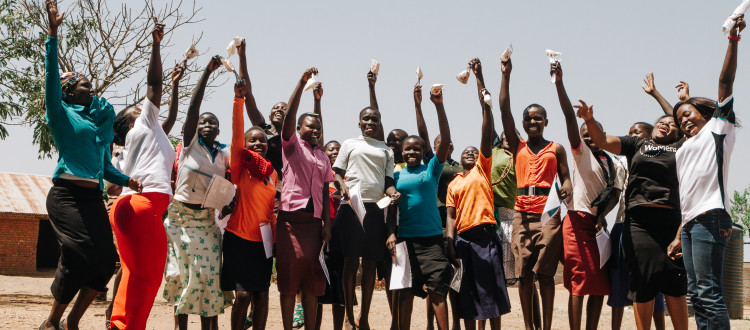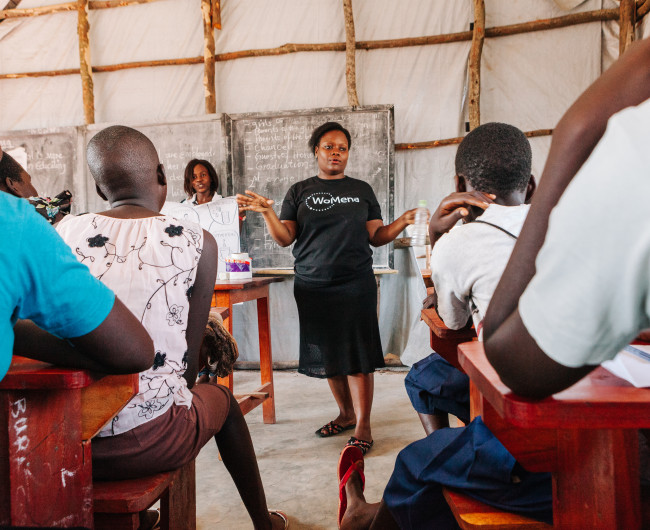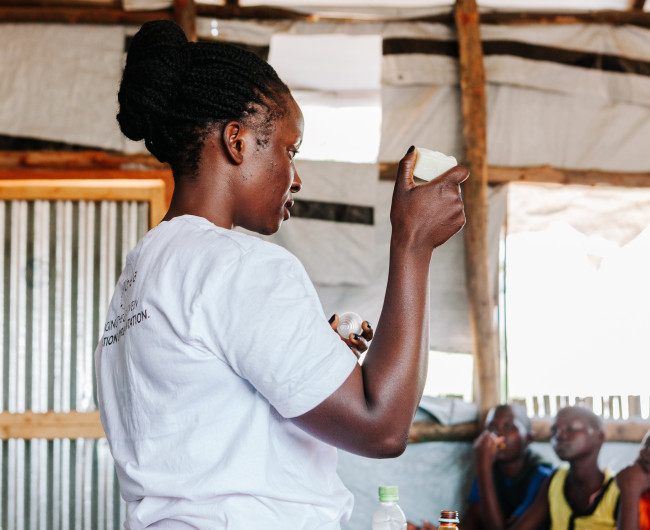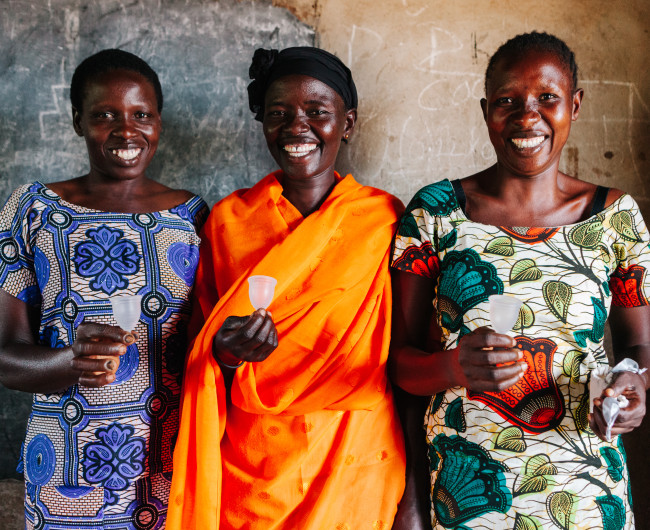REPORT: MENSTRUAL HEALTH IN RHINO CAMP REFUGEE SETTLEMENT
In Uganda approximately 86% of South Sudanese refugee arrivals are women and children (UNHCR, 2017). Globally, girls and women often lack the ability to manage their menstruation with dignity due to lack of adequate and private facilities, safe, acceptable and accessible menstrual health products and knowledge, which can be further exasperated during conflict and displacement. Menstrual Health Management (MHM) is, however, often an overlooked component in acute and protracted emergency situations, as it is not considered life threatening. There is also a general lack of Monitoring & Evaluation (M&E) data on MHM implementation models in refugee settings. Although menstrual health products are distributed within refugee settlements and a number of interventions have included reusable pads, no evidence on the introduction of menstrual cups in humanitarian programming is available.
MHM pilot intervention in Rhino Camp Refugee Settlement
With support from WoMena Uganda, ZOA implemented a MHM pilot intervention in Rhino Camp Refugee Settlement to assess the acceptability of introducing menstrual cups and reusable pads as part of their Teach Me More school-based programme. The pilot also aimed to assess the feasibility of following guidelines for safe use and care of the reusable products. The pilot intervention was carried out over a period of six months, with a four-month product use period. The intervention consisted of an on-site assessment aimed at modifying WoMena’s implementation model to the refugee settlement context, stakeholder engagement and community sensitisation activities, training of support persons, schoolgirls and mother/guardians on MHM and safe use and care of menstrual cups and reusable pads, as well as monthly support meetings. WoMena carried out evaluation activities at baseline, mid-line and end-line.
Results from the baseline indicated that girls and women lacked the essentials to manage their menstruation safely and with dignity. They lacked access to menstrual management products, soap, underwear, and menstrual pain relief. Although respondents reported having access to water and handwashing facilities close to latrines, 58% reported not having access to a basin to wash MH products or having facilities in which to dry them. A number of other projects including MHM product and knowledge distribution have taken place in the communities, however respondents reported the supply of products to be inadequate and unreliable.
Despite reported cultural restrictions on discussing menstruation (particularly for men) and reported restrictions on mobility and daily activities during menstruation, participants and their surrounding communities expressed an openness to talking about menstruation and were welcoming towards the intervention. The realities of living in a refugee settlement also seemed to allow for deviation from the set cultural rules around menstruation, and can provide a dynamic context within which to enact change in normative understandings of menstruation.
Acceptability of reusable menstrual products
Despite initial concerns about the menstrual cup (and to some extent the reusable pads), product uptake among intervention participants was high, 61% for menstrual cups and 100% for reusable pads (based on reported use during the last menstrual cycle). It is expected that girls and women may take between two to six months to become accustomed to menstrual cup use, and user uptake is expected to further increase with time. Product users reported high levels of satisfaction, with the menstrual cup scoring slightly higher in terms of user satisfaction.
The reported challenges related to AFRIpads are mostly related to availability of infrastructure and facilities, while the challenges related to menstrual cup usage revolve around experiences directly related to personal use. Respondents who either chose their product or got both were most satisfied with both reusable pads and menstrual cups, and the participants who received both products reported using the products interchangeably, depending on personal preference (for example level of menstrual flow) and water availability for washing. This allowed girls and women to adapt to the contextual challenges within the refugee settlement context for a more comfortable period.




